第42章 COLLEGE PAPERS(8)
The kings of Siam,as we read,besides having a graduated social scale of umbrellas (which was a good thing),prevented the great bulk of their subjects from having any at all,which was certainly a bad thing.We should be sorry to believe that this Eastern legislator was a fool -the idea of an aristocracy of umbrellas is too philosophic to have originated in a nobody -and we have accordingly taken exceeding pains to find out the reason of this harsh restriction.We think we have succeeded;but,while admiring the principle at which he aimed,and while cordially recognising in the Siamese potentate the only man before ourselves who had taken a real grasp of the umbrella,we must be allowed to point out how unphilosophically the great man acted in this particular.His object,plainly,was to prevent any unworthy persons from bearing the sacred symbol of domestic virtues.We cannot excuse his limiting these virtues to the circle of his court.We must only remember that such was the feeling of the age in which he lived.
Liberalism had not yet raised the war-cry of the working classes.But here was his mistake:it was a needless regulation.Except in a very few cases of hypocrisy joined to a powerful intellect,men,not by nature UMBRELLARIANS,have tried again and again to become so by art,and yet have failed -have expended their patrimony in the purchase of umbrella after umbrella,and yet have systematically lost them,and have finally,with contrite spirits and shrunken purses,given up their vain struggle,and relied on theft and borrowing for the remainder of their lives.This is the most remarkable fact that we have had occasion to notice;and yet we challenge the candid reader to call it in question.Now,as there cannot be any MORAL SELECTION in a mere dead piece of furniture -as the umbrella cannot be supposed to have an affinity for individual men equal and reciprocal to that which men certainly feel toward individual umbrellas -we took the trouble of consulting a scientific friend as to whether there was any possible physical explanation of the phenomenon.He was unable to supply a plausible theory,or even hypothesis;but we extract from his letter the following interesting passage relative to the physical peculiarities of umbrellas:'Not the least important,and by far the most curious property of the umbrella,is the energy which it displays in affecting the atmospheric strata.There is no fact in meteorology better established -indeed,it is almost the only one on which meteorologists are agreed -than that the carriage of an umbrella produces desiccation of the air;while if it be left at home,aqueous vapour is largely produced,and is soon deposited in the form of rain.No theory,'my friend continues,'competent to explain this hygrometric law has been given (as far as I am aware)by Herschel,Dove,Glaisher,Tait,Buchan,or any other writer;nor do I pretend to supply the defect.I venture,however,to throw out the conjecture that it will be ultimately found to belong to the same class of natural laws as that agreeable to which a slice of toast always descends with the buttered surface downwards.'
But it is time to draw to a close.We could expatiate much longer upon this topic,but want of space constrains us to leave unfinished these few desultory remarks -slender contributions towards a subject which has fallen sadly backward,and which,we grieve to say,was better understood by the king of Siam in 1686than by all the philosophers of to-day.If,however,we have awakened in any rational mind an interest in the symbolism of umbrellas -in any generous heart a more complete sympathy with the dumb companion of his daily walk -or in any grasping spirit a pure notion of respectability strong enough to make him expend his six-and-twenty shillings -we shall have deserved well of the world,to say nothing of the many industrious persons employed in the manufacture of the article.
V -THE PHILOSOPHY OF NOMENCLATURE
'How many Caesars and Pompeys,by mere inspirations of the names,have been rendered worthy of them?And how many are there,who might have done exceeding well in the world,had not their characters and spirits been totally depressed and Nicodemus'd into nothing?'-TRISTRAM SHANDY,vol.I.chap xix.
Such were the views of the late Walter Shandy,Esq.,Turkey merchant.To the best of my belief,Mr.Shandy is the first who fairly pointed out the incalculable influence of nomenclature upon the whole life -who seems first to have recognised the one child,happy in an heroic appellation,soaring upwards on the wings of fortune,and the other,like the dead sailor in his shotted hammock,haled down by sheer weight of name into the abysses of social failure.Solomon possibly had his eye on some such theory when he said that 'a good name is better than precious ointment';and perhaps we may trace a similar spirit in the compilers of the English Catechism,and the affectionate interest with which they linger round the catechumen's name at the very threshold of their work.But,be these as they may,I think no one can censure me for appending,in pursuance of the expressed wish of his son,the Turkey merchant's name to his system,and pronouncing,without further preface,a short epitome of the 'Shandean Philosophy of Nomenclature.'